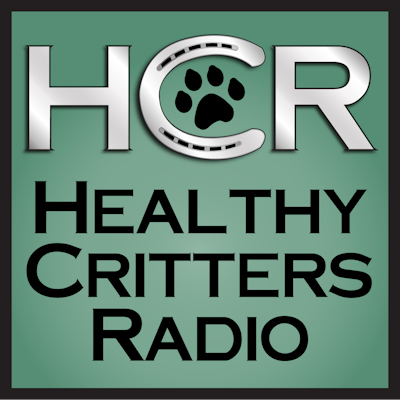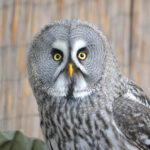










We discuss reducing drama around our animals with Lizzy Meyer; the Critter of the Show is the Great Grey Owl; in Critter Nutrition we focus on protecting the gut from herbicide and pesticide exposure; and in Coffee Klatch we ask: What superpower does your horse or dog think you have?
Listen in!
Guests and Links for Episode 158:

- Link to Sound File for Sight Impaired: Click Here
- Co-Hosts: Tigger Montague from BiostarUS and Pati Pierucci from Pierucci Dressage
- Article: Protecting the Gut from Herbicide and Pesticide Exposure
- Ask Hedwig
- Learn more about Whole Food Supplements for Your Horse and Dog’s Optimal Health at Biostar US
- Photo source: Pixabay
Tigger Montague delivers a wake-up call about the effects of herbicide and pesticide exposure on our animals:
“Recently a customer notified me that she had her feed tested for glyphosate (Roundup) residue. She had been happy with the feed until she noticed her horses weren’t thriving on it as they had been; they were losing weight and muscle. She decided to have the feed tested, and it came back positive.
The wide use of pesticides and herbicides exposes horses, dogs, cats, and humans to these environmental toxins. The current research is pretty clear about how environmental toxins affect the gut.
It’s not just feed. According to a 2020 NC State Extension publication, there are specific herbicides of concern — registered for application to pasture, grain crops, lawns, turf, certain vegetables and fruits — that remain active in treated soil, in hay and pasture, and throughout the digestive tracts of animals, even retaining their herbicidal activity long after being excreted in urine and manure.
More than one billion pounds of herbicides and pesticides are applied annually on farms, backyards and urban areas in the US. These chemical compounds are contributing to biodiversity loss in soils, aquatic ecosystems, and the loss of invertebrates such as mayflies and dragonflies. […]
Studies have shown that glyphosate exposure alters gut microbial composition, causing dysbiosis — an imbalance in gut microflora homeostasis. Opportunistic pathogens like E.coli and Staphylococcus have developed mutations that allow them to be unharmed by glyphosate, contributing to the imbalance.
Maintaining a healthy ecosystem in the gut is one of the best ways to help your horse’s body deal with environmental toxins. One of the best ways to help the gut microbiome is to ensure the diversity of beneficial organisms and provide the food they need to colonize and thrive…
At Healthy Critters Radio, we are hopeless animal lovers who want to share our experience and knowledge with you, for the betterment of your animals’ lives. We focus on health, nutrition, behavior, and ideas for overall well-being and happiness. Twice a month, we bring you guest experts, advice, commentary, and a lot of fun and laughter! If there is ever a topic you’d like for us to cover, let us know on our contact page!






